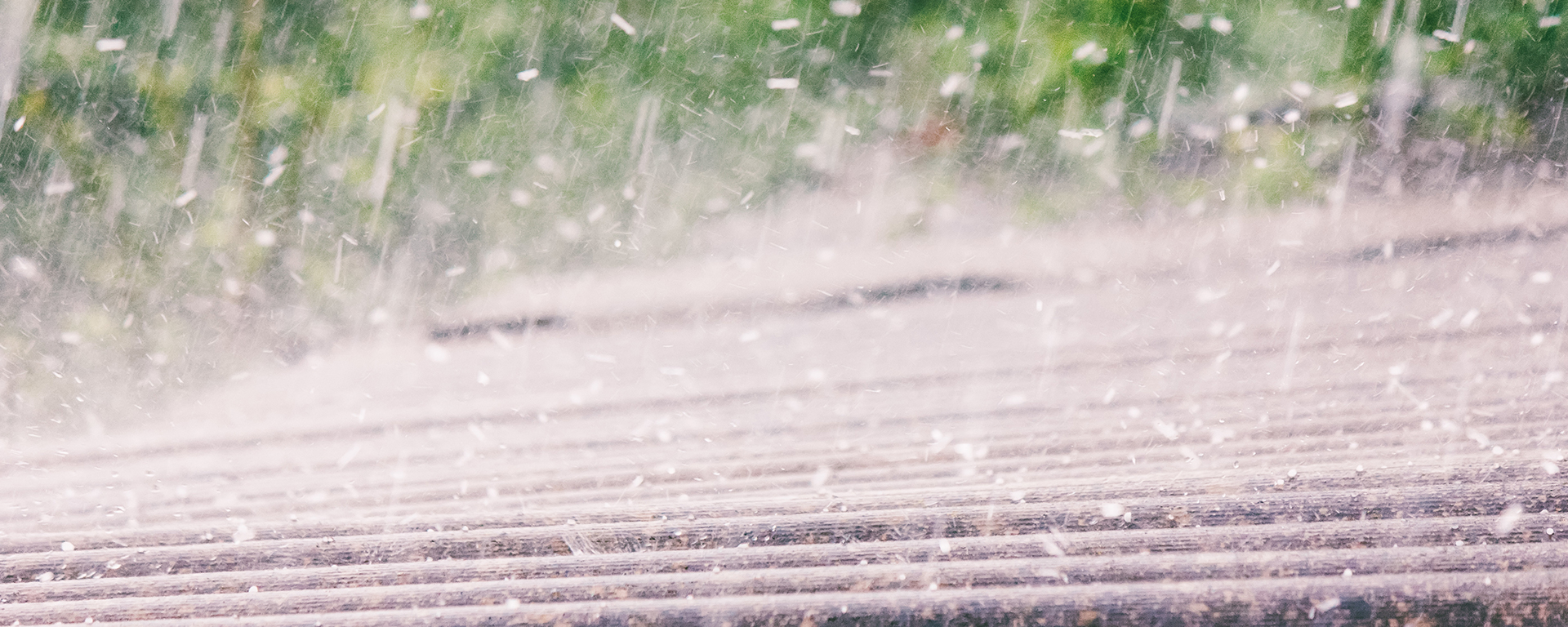July 25, 2023 Homeowner
Hail storm preparedness
Hail is one of the most common weather hazards in the US. In 2018, there were 4,610 major hail storms caused over $810 million in damages to buildings, vehicles, and crops. Severe weather often produces hail, which means most people are already preparing for a storm when it hits. By paying attention to the National Weather Service, you may be able to prepare for last-minute hail.
Roof damage is the most common issue when it comes to hail, but windows and siding, as well as vehicles, are also frequently damaged. It's also one of the reasons it is hard to track storm damage accurately. Most people don't check their roof regularly. As with other severe weather events, it's best to prepare for hail long before you may need to.
Are you prepared for hail and severe weather?
There are several ways to prepare for hail and other severe weather, starting with understanding your insurance policy. By asking questions about coverage, replacement cost versus actual cash value, and simply checking on your insurance policy annually, you'll be ahead of the game.
Do annual insurance checkups
- Do you know what your policy covers?
- Do you understand replacement cost versus actual cash value?
Know what is and isn't covered
- Hail damage is typically covered in a homeowners insurance policy.
- Consider comprehensive coverage for your auto policy.
- Damage from flooding is not covered in your homeowner policy.
Create a home inventory
Use your smartphone to make a home inventory and document all your belongings. Just like when you're moving or looking to buy a home, a little research and hard work beforehand make the process after the storm much more manageable.
What to do after a hailstorm
When the storm is over and it is safe to do so, it's time to assess the damage, file a claim if needed, and take steps to prevent any further damage.
Assess the damage
- Check trees, shrubs, and plants around your house. If they are stripped of their foliage, there is a possibility that your roof is damaged.
- You should also check for roof damage if patio covers, screen, or soft aluminum vents are dented.
- Check your car for dents and broken or cracked glass.
Protect your property from further damage
- If you find signs that hail has battered your property, take immediate steps to protect it from further damage.
- Cover any broken windows and holes in your roof so that no water can enter and damage your home's interior.
- Cover any broken glass in your car to prevent damage to the interior from rain and remove the glass from the interior to avoid cuts in the upholstery and carpet.
File your claim
- Call your Armed Forces Insurance agent as soon as you notice the damage. Practically all homeowner policies cover hail damage.
- If your agent requests you to do so, follow up your call with a written explanation of what happened.
- Save receipts for what you spend and submit them to Armed Forces Insurance for reimbursement.
If you determine it's time to make some structural changes to your home, or replace your roof, make sure you find a quality contractor who is going to use the right products. Do your research and don't be afraid to ask questions.
It's important to remember that it's almost impossible to prevent hail from causing damage, but you can minimize its impact on your property and your wallet, but taking these steps.
Armed Forces Insurance: your trusted home insurance advisor
Armed Forces Insurance has been a trusted advisor to American armed forces service members and veterans for more than 135 years. We’re not a giant corporate skyscraper full of slick insurance executives. We’re a small company headquartered just down the road from Fort Leavenworth in Kansas. We know each other, and our customers know us. If you’re looking for someone you can trust to shoot you straight and help you protect your home and property, check out our homeowner insurance page.

